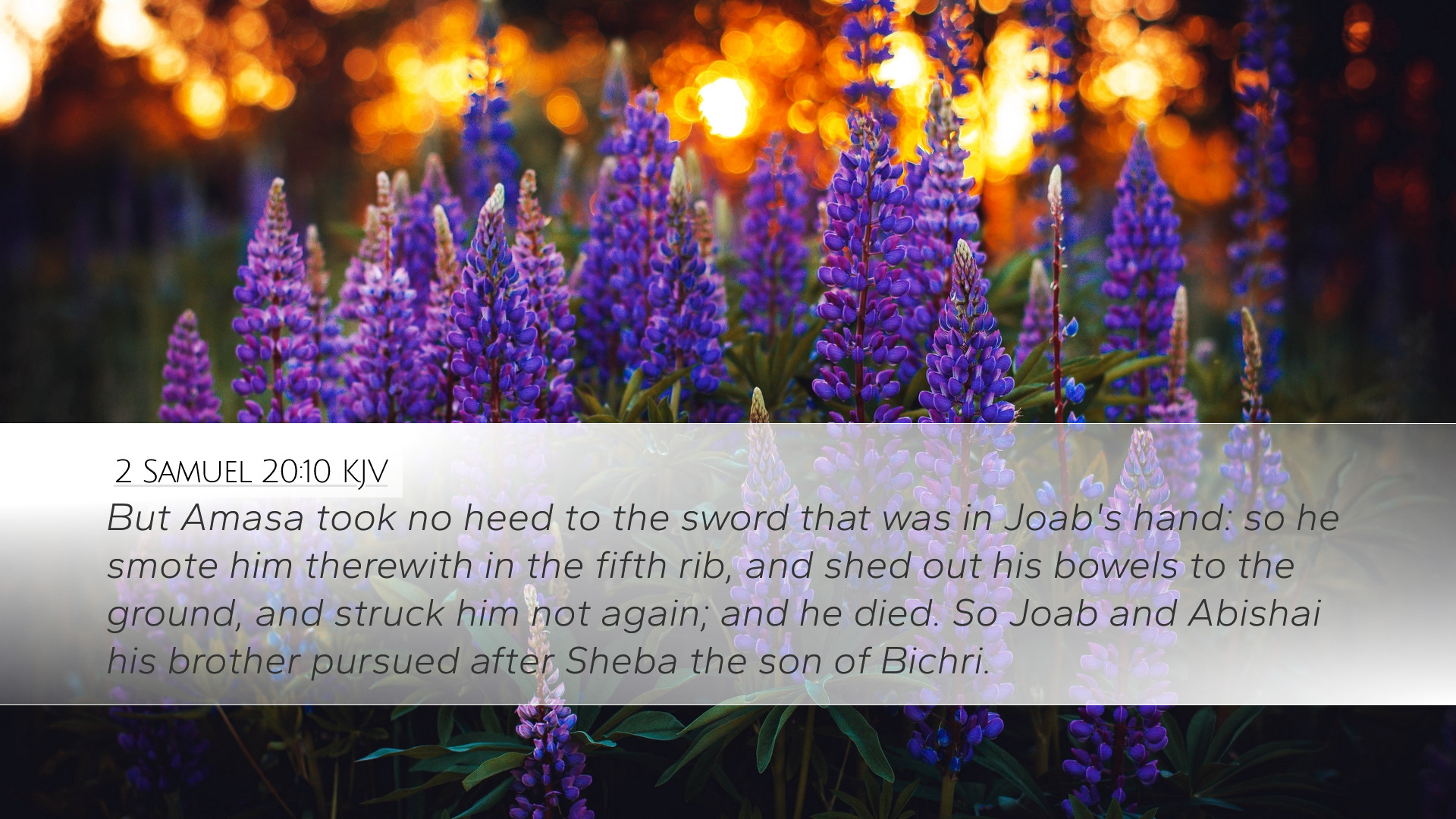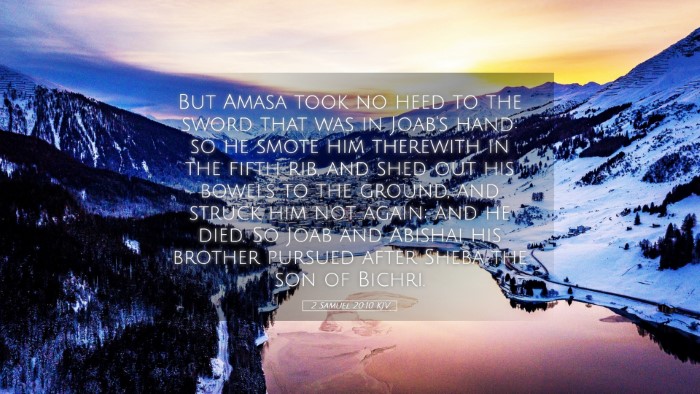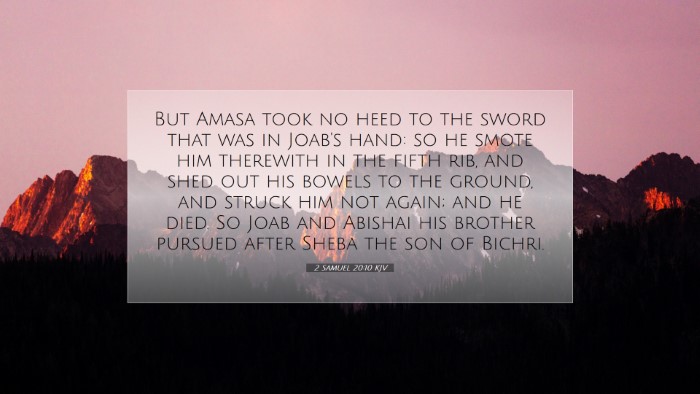Commentary on 2 Samuel 20:10
Bible Verse: "But Amasa took no heed to the sword that was in Joab's hand: so he smote him therewith in the fifth rib, and shed out his bowels to the ground, and struck him not again; and he died. And Joab and Abishai his brother pursued after Sheba the son of Bichri."
Introduction
2 Samuel 20:10 presents a dramatic moment in the turbulent life of David's reign, characterized by political intrigue and personal betrayal. This verse encapsulates the violent conflict between Joab, David's military commander, and Amasa, who had been appointed to replace Joab. The interplay of power, loyalty, and treachery in this passage is dense with theological and moral implications, as understood through historical and contemporary lenses.
Contextual Background
The events surrounding this verse are rooted in the civil war following Absalom's rebellion. After the death of Absalom, David's kingdom faced further strife led by Sheba son of Bichri, who stirred trouble against David. Amasa, who was a cousin of Joab and had been appointed to lead the army, finds himself caught between his role and the machinations of the ruthless Joab.
Commentary Insights
Matthew Henry's Commentary
Henry emphasizes the careless attitude of Amasa regarding the imminent danger represented by Joab. He notes the significance of Amasa's failure to recognize Joab's intent and weapon in this decisive moment. Amasa's inattention is not just physical but indicative of broader spiritual neglect; he lacked vigilance in a time of chaotic political maneuvering. Henry suggests that leaders must remain aware of both personal enemies and internal threats, highlighting the importance of wisdom and discernment in leadership.
Albert Barnes' Notes
Barnes points out that Joab's act of violence was both premeditated and a means of regaining his position of power. He elaborates on Joab's character—his brutal nature and fierce loyalty to David, paired with a tendency towards ruthless tactics. Barnes remarks that Joab's actions, while politically motivated, demonstrate a deeper moral failing. The passage serves as a warning against the corrupting influence of power and the ease with which one can resort to injustice to secure one’s position. He reflects on the greater implications for leadership, stating that such actions destroy trust and lead to division among God's people.
Adam Clarke's Commentary
Clarke delves into the implications of Amasa's violent death, linking it to the prophetic warnings regarding those who seek to usurp power through violence. He highlights Joab's historical portrayals of bloodshed and violence, underscoring that these actions have deep ramifications not just for leaders like Joab, but for the nation as a whole. Clarke interprets Amasa's demise not merely as a personal tragedy but as a reflection of the chaotic moral landscape during David's reign. He calls attention to the enduring lesson that seeking peace through violence often leads to further conflict and resolution.
Theological Implications
The narrative invites readers to explore major themes of divine justice, moral failures in leadership, and the consequences of betrayal. The brutal action of Joab against Amasa raises pertinent questions about ethics in leadership. The way these themes resonate can lead to reflection on contemporary issues where power struggles and injustices occur within faith communities.
- The Nature of Power: This incident illustrates the dangers inherent in political power and the lengths to which individuals may go to maintain or reclaim it.
- Vigilance and Discernment: Amasa's failure to be aware of Joab's intentions serves as a lesson for readers about the necessity of discernment in leadership.
- Consequences of Violence: Joab's ruthless efficiency in achieving his ends teaches that such methods ultimately undermine the integrity of governance and community.
Conclusion
In 2 Samuel 20:10, we find a microcosm of the larger narrative arcs in the books of Samuel. The stark realities of leadership, the seductive allure of power, and the inevitable consequences of our actions are all brought to the forefront in this striking episode. For pastors, theologians, and scholars, these reflections challenge us to consider how we engage in our own contexts and bear witness to divine justice and mercy amidst the turbulent waters of human politics.


